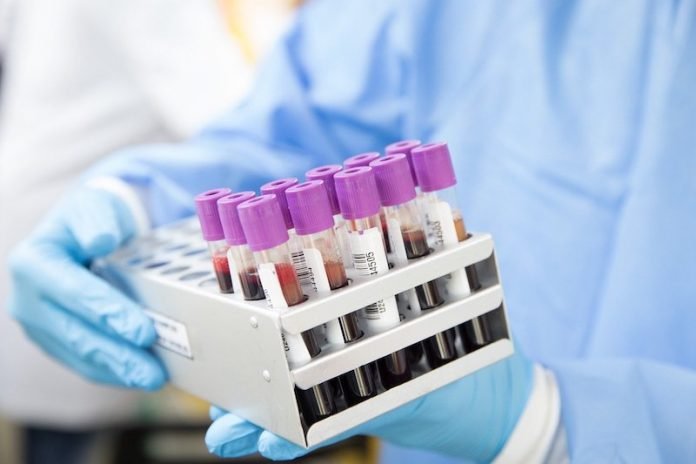
Scientists from the University College London found that people suffering from long COVID may face an increased risk of abnormal blood clotting.
They also found that this blood abnormality was four times more likely in those experiencing difficulties with basic exercise more than 12 weeks after their COVID-19 infection.
The research is published in Blood Advances and was conducted by Dr. Melissa Heightman et al.
Long COVID (also known as Post-COVID Syndrome), a condition that occurs in people previously infected with COVID-19, results in symptoms that persist months after the initial onset of infection.
Common symptoms include fatigue, chest pain, shortness of breath, and brain fog, and experts estimate that up to half of all people who recover from infection continue to experience lingering symptoms.
In the study, the team assessed people in an outpatient Post-COVID clinic between July 2020 and May 2021.
Participants were said to have long COVID if they experienced symptoms three months after the onset of their original COVID-19 infection and if those symptoms persisted for at least two additional months—in the absence of other contributing diagnoses.
Researchers measured abnormal blood clotting markers by assessing the relative levels of two proteins in the body.
Participants also completed exercise tests, performing timed activities such as walking on a flat surface and/or repeatedly going from sitting to standing position from a chair while wearing oxygen monitors.
Researchers measured oxygen levels and tested participants’ blood before and after exercise to measure their lactate levels, which helped describe participant response to exertion.
The team found that patients who exhibited a big decrease in oxygen levels (measured by a sensor on the patient’s finger) while exercising and/or a rise in lactate afterward were said to demonstrate an impaired exercise capacity.
Notably, patients with raised levels of blood clotting markers were also four times more likely to have an impaired exercise capacity.
In the future, the team aims to assess patient bloodwork using different research platforms over the course of their long COVID illness to assess how their risk of thrombosis might change with the progression of their symptoms.
The researchers say that this additional monitoring could not only help confirm possible mechanisms underlying long COVID, but also offer insight into the effects of potential treatment options for the condition.
If you care about COVID, please read studies about drug duo that could help cure COVID-19, and green tea offers new hope to beat COVID-19.
For more information about COVID, please see recent studies about the cause of severe inflammation in COVID-19, and results showing new way to prevent broad range of COVID-19 variants.
Copyright © 2022 Knowridge Science Report. All rights reserved.



